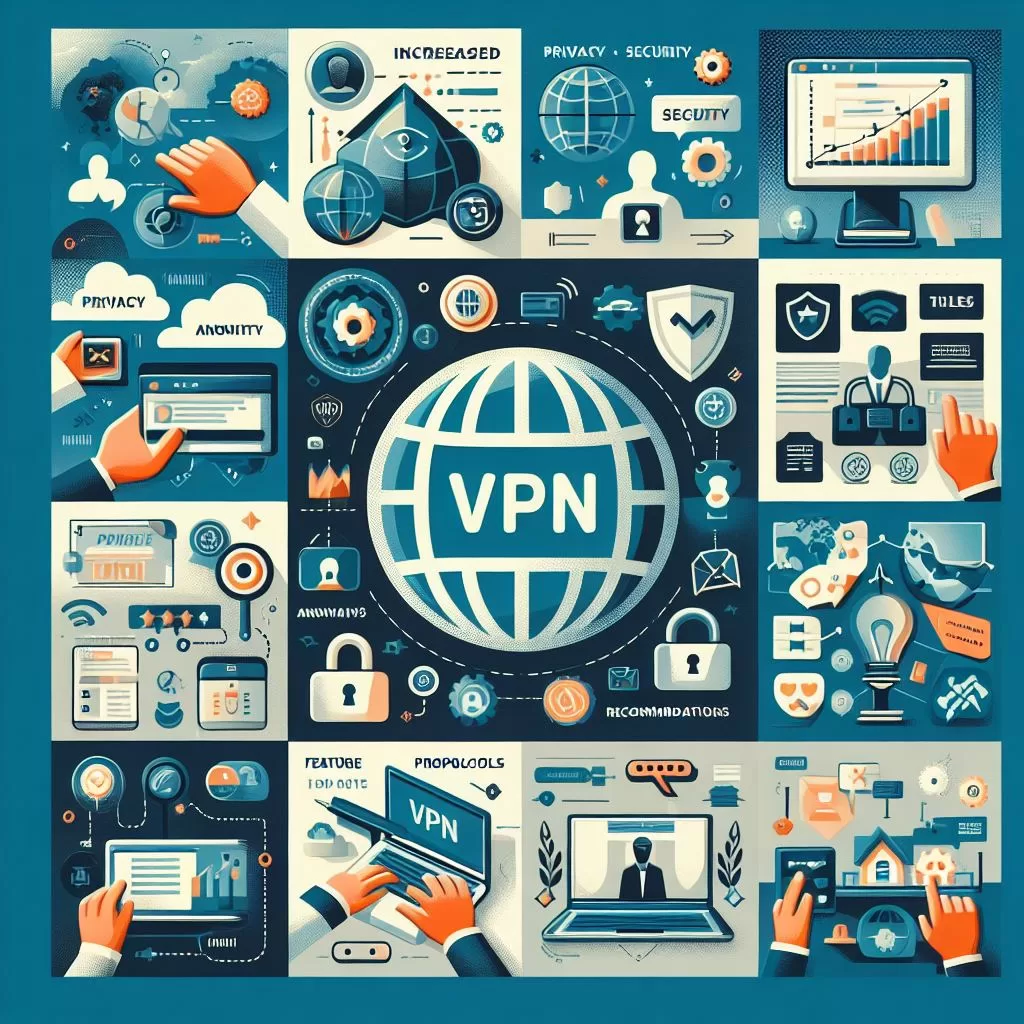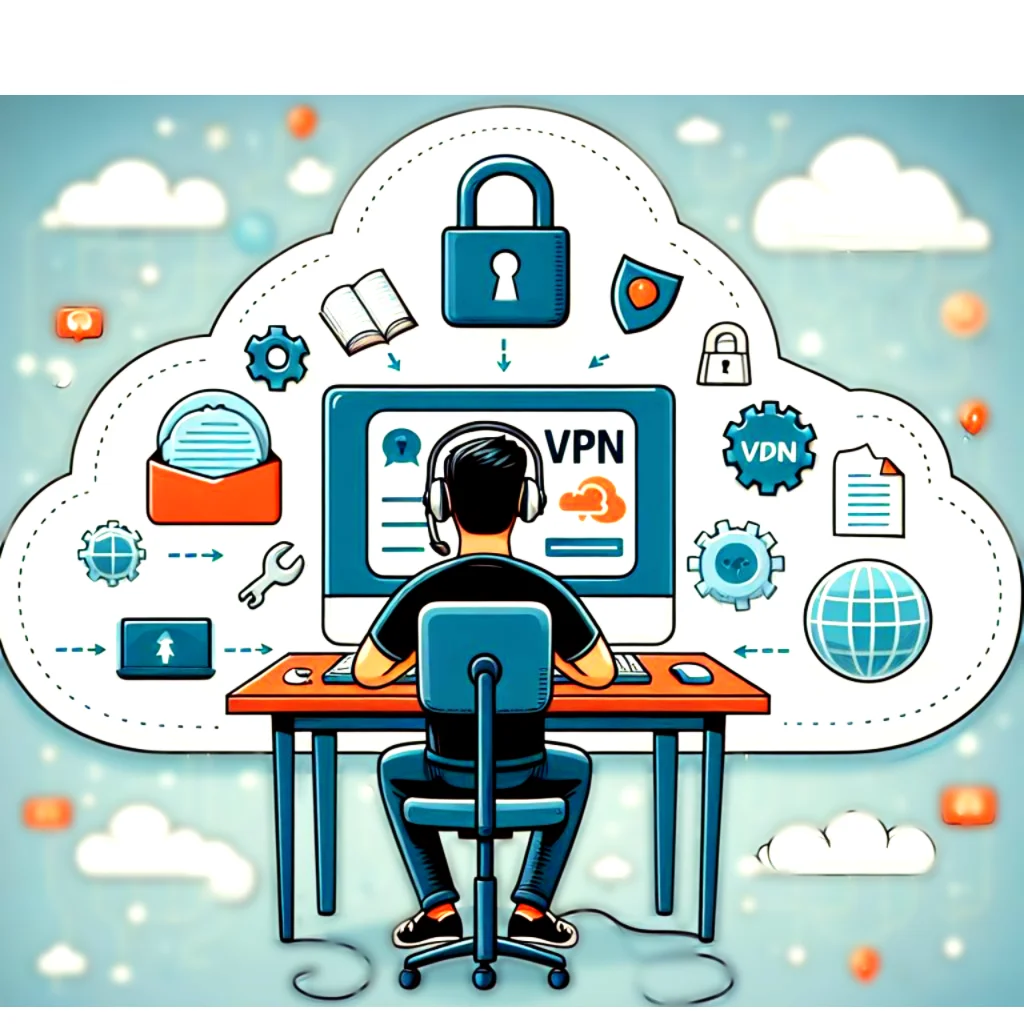VPN Services
Table of Contents
ToggleWhat is a VPN?
A VPN, which stands for Virtual Private Network, is a technology that allows users to create a secure and private connection over a public network such as the internet. It essentially creates a tunnel between your device and the VPN server, encrypting your data and protecting it from prying eyes. With a VPN, your online activities are shielded from hackers, government surveillance, and even your internet service provider.
One of the key features of a VPN is its ability to hide your real IP address. When you connect to a VPN server, your internet traffic appears to be originating from the server’s location rather than your actual location. This not only provides you with anonymity online, but it also allows you to bypass geo-restrictions and access content that may be blocked or limited in your region. Whether you’re traveling abroad or simply want to access streaming platforms from different countries, a VPN can be a valuable tool in ensuring unrestricted access to the internet.

Why Use a VPN?
In the digital age, where cyber threats are constantly evolving, it has become more important than ever to prioritize online security. This is where a Virtual Private Network (VPN) comes into play. A VPN provides a secure and encrypted connection between your device and the internet, ensuring that your data and online activities remain private and protected from prying eyes. By using a VPN, you are taking a proactive step towards safeguarding your sensitive information from potential hackers and other malicious entities.
Moreover, another compelling reason to use a VPN is to bypass geographical restrictions and access content that may be blocked in your current location. Whether you want to stream your favourite TV shows while traveling abroad or access websites or services that are only available in certain regions, a VPN can grant you the freedom to enjoy online content without any limitations. With the ability to disguise your IP address and make it appear as if you are connected from a different location, a VPN opens doors to a world of unrestricted access and endless possibilities. So, whether you are a frequent traveler or simply someone who values their online security and privacy, employing a VPN is a wise and necessary choice in today’s interconnected world.
How Does a VPN Work?
A VPN, short for Virtual Private Network, operates by creating a secure and encrypted connection between a user’s device and the internet. When you connect to a VPN, your data passes through a remote server located in a different geographical location. This server assigns you a different IP address, hiding your original one and making it appear as though you are browsing from another location.
The encryption process in a VPN involves scrambling your data so that it becomes unreadable to anyone who intercepts it. This ensures that your online activities, such as accessing websites, streaming content, or communicating with others, remain private and protected from potential hackers or government surveillance. Furthermore, a VPN allows you to bypass geo-restrictions and access content that may be restricted in your current location, providing you with an added layer of freedom and flexibility online. Overall, a VPN works by combining encryption and routing techniques to secure your internet connection and safeguard your online privacy.
Related posts:
- Benefits of VPN Services
- Types Of VPNS
- VPN best practices
- Choosing a VPN Service
- Setting Up and Using a VPN
- VPN Use Cases: Unveiling the Powerhouse: How VPNs Transform Your Online World!
- ExpressVPN
- IPVanish VPN Service
- NordVPN Service – The Gold Standard In VPN Services
- Surfshark VPN Service Ultimate Review
- Unleash Your Online Freedom with CyberGhost VPN: Secure, Anonymous, and Fast
- PrivateVPN: Protect Your Online Privacy and Unlock the Internet’s Full Potential
- A Comprehensive Review of PureVPN: A Robust and Versatile VPN Service
- Is VeePN safe? VeePN Protects Online Privacy
- Secure Your Online Privacy with VyprVPN: The Ultimate Guide to Anonymous Web Browsing
- Stay Safe and Secure Online with Private Internet Access VPN: Your Ultimate Shield Against Cyber Threats
- VPNs For Gaming
- Best VPN services for India




